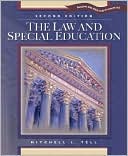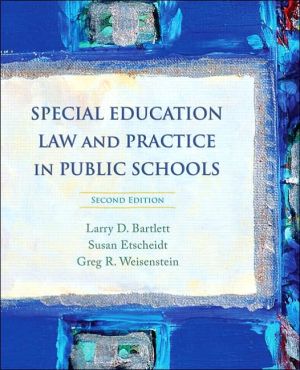Facing the Future: The Indian Child Welfare ACT at 30
The U.S. Congress is charged with responsibility for the protection and preservation of American Indian tribes, including Indian children. In 1978, Congress enacted the Indian Child Welfare Act (ICWA), with the intent to "protect the best interests of Indian children and to promote the stability and security of Indian tribes and families." ICWA sets federal requirements that apply to state child custody proceedings involving an Indian child who is a member of or eligible for membership in a...
Search in google:
FACING THE FUTURE\ THE INDIAN CHILD WELFARE ACT AT 30 \ \ Michigan State University Press\ Copyright © 2009 Michigan State University\ All right reserved.\ ISBN: 978-0-87013-860-7 \ \ \ Chapter One\ Working on the Front Lines\ The Role of Social Work in Response to the Indian Child Welfare Act of 1978\ Suzanne L. Cross, Angelique G. Day, and Emily C. Proctor\ The social-work role, attitudes, patterns of response, and timeliness are vital to compliance with the Indian Child Welfare Act (ICWA). This requires professional social workers to be knowledgeable about ICWA, the doctrines in place designed to circumvent the process, and cultural competency to make appropriate decisions that have life-altering and lifelong impact on American Indian children, their families, and ultimately, tribal communities. In addition to the need and support for an excellent ICWA training program for all agency administrators and social workers, a mechanism is required to ensure that the information gained from training will be supported and implemented for the benefit of all U.S. tribal nations.\ Social Work Education\ Although ICWA was passed thirty years ago, many social workers and most social-work students are unfamiliar with, and sometimes unwilling to comply with, this law. The lack of knowledge of the Act begins in the classroom with textbooks devoting only a short paragraph or two to the topic. The students are expected to read, understand, and digest information that is vital to the lives of American Indians, without classroom discussion or case analysis. All schools of social work should be required to have at least one unit (class period) dedicated to ICWA: its rationale, implementation process, case analysis, and consequences of noncompliance. Instead, it is often viewed as an optional topic for focus and discussion.\ In addition to the need for more in-depth study and inclusion of the Act in the curriculum, there is a need to address some resistance from faculty members and field supervisors. Several do not agree with the premise that American Indian children benefit by being raised only by tribal people. These are the very professionals who need to be advocating, teaching, and supporting ICWA, not making statements such as "I don't agree with ICWA; as long as the children have a loving family, it does not matter who raises them." Clearly this reflects their personal point of view. All social workers have a right to their own value systems; however, the National Association of Social Work (NASW) professional code of ethics requires suspension of personal value systems to meet the needs of clients. These faculty members and field supervisors are not only failing to be in compliance with their professional code of ethics, they are also in noncompliance with a federal law. It is extremely unfortunate that their attitudes quickly filter down to the students.\ Students both tribal and non-tribal, from a number of non Michigan social-work programs, have shared that while in class, they had wanted to discuss ICWA, and that the professors indicated that ICWA must be a state law and does not apply to their studies. Also, students in field placements both in and out of state have indicated that when they attempt to follow ICWA, they often hear comments such as "that takes too much time, and the children are probably not Indian anyway." At this point, the students feel they have no recourse and need to follow the guidance of their professors or field supervisors to be able to receive an acceptable grade. Thus, they are provided with little motivation to learn the importance of compliance with ICWA, while sacrificing opportunities to assist Indian families. Contrarily, there have been some students who were willing and independent enough to demand to do what is right by following the guidelines of ICWA, regardless of the possible repercussions.\ Conversely to those professors who resist teaching about ICWA, there are those who do want to provide lectures with case analysis in the classroom; but they are sometimes met with disinterest from a few students. These students may quietly disengage from the discussion of the topic, while others may state their disagreement with the premise of ICWA. These students are obviously frustrated, which creates a challenge to motivate them to learn about the Act. Professors may find that it will take time and skill to change minds in regard to the legitimacy of ICWA, the importance of the role of the social workers, and the legal obligation for compliance. Although when a breakthrough occurs, many of these students become allies, and as professional social workers insist on the implementation of ICWA.\ Sometimes the breakthroughs occur outside of the classroom, in tribal communities where students can experience the impact of ICWA on families. For example, a qualitative study was conducted, entitled American Indian Grandparents Parenting Their Grandchildren in Michigan, which included students as research assistants. These students interviewed thirty-one individual grandparents and facilitated twenty-seven focus groups within the state. The students learned that of the thirty-one individual grandparents interviewed, only seven grandparents found ICWA to be helpful, fifteen found it was not helpful, and nine were not aware of the Act. These statistics are certainly small in number, but made an enormous impact on the twelve undergraduate students and four graduate students who were involved in the study. They had the opportunity to hear many of the grandparents' situations; two are provided to demonstrate the learning process. The first situation was that of a loving couple who had provided care for their grandson since birth, and then experienced the child's removal from their care when he was two-and-a-half years of age. The second situation was of a healthy, employed grandfather, who worked for his tribal nation and resided on the reservation, having to wait nine months to be able to obtain custody of his fourteen-year-old grandson, who was placed in a nearby town with a non-Indian family. These situations are only two examples of the family disruptions that are evidence of noncompliance with ICWA. As a result of the students' involvement in this research project, they gained invaluable knowledge of, and witness to, the devastating impact of noncompliance. Therefore, it is a wise investment to include undergraduate and graduate students in research projects, especially when the focus is on ICWA.\ It is understandable that all students cannot have this experience, but faculty members need to be creative in the development of learning opportunities for students to increase their education and awareness of ICWA. The reward for time spent on student inclusion is that professional social workers are prepared to be advocates of ICWA and willing to share their commitment, knowledge, and experience.\ Judicially Created Exceptions to ICWA\ There are several terms, developed to allow the circumventing of the Indian Child Welfare Act, that have proven to be pivotal in child welfare cases involving American Indian children. Several terms have become a part of the definition of what constitutes an Indian family and the meaning of culture. It appears that many of these terms have resulted from the frustration at the amount of time that is required to follow ICWA and work with tribal nations.\ There are variations to the doctrine that have been utilized by courts which include the "Indian Family Exception" doctrine, the "Indian Family" doctrine or the "Existing Indian Family" doctrine. These doctrines have a major impact on the outcome of cases, and more importantly, the lives of Indian children and tribal nations. The Existing Indian Family doctrine and variations have been applied in several states, including California, Indiana, Kansas, Kentucky, Louisiana, Michigan, Oklahoma, and Washington.\ As social workers, both tribal and non-tribal, it is a professional responsibility to be knowledgeable about ICWA, the variations of the doctrine, its accompanying terminologies, and the resulting impact on the lives of tribal children. Also, as advocates, it is important to share with community members the importance of ICWA, the circumventions, and the resulting loss of children. This information is vital in providing families with an awareness of what others have experienced, and it may help to prepare them to seek legal representation in a timely manner. Unfortunately, many Indian families remain unaware of ICWA until they arrive in court and find that it is "too late to fight or make changes," as expressed by many grandparents.\ Tribal Social Worker Point of View\ Tribal social work is a challenge, especially for recent graduates entering the field of child welfare with a desire to work for their own tribal nation. When hired, they are expected to be prepared to take on any case that is assigned to them, to know where to begin and what to do as soon as they are part of the social services team. The learning curve is extremely steep because social workers, especially tribal social workers, are in high demand. Upon reflection, social workers may view this as one of the best experiences they have had; however, making the adjustment at the time can be difficult.\ Another aspect of tribal social work is the number of roles the worker is asked to fulfill. One may not only be the child protective services worker, but also the foster care worker. The dual role puts the worker in a delicate situation: being part of the child removal process, giving testimony in court with regard to the parents progress in meeting the goals of the service plan, and then being in the role of assisting them in working toward getting back their children, whom the worker has just helped to remove.\ As a tribal social worker, it is important to work collaboratively to provide services and, if at all possible, to conduct the investigations with the local department of human services. This may be difficult in some situations, but if the social workers are able to have an open and honest relationship, they can assist each other and present several different strategies to one another, until the best service plan for a particular family is agreed upon.\ When the social workers are able to visit family homes together, a level of comfort is established by the tribal family members being aware of the tribal member's (tribal social worker's) presence and witness to what is happening during the investigation. The tribal social worker is also able to share with the non-tribal social worker some of the cultural issues that may occur and cause uneasiness for the tribal members. It is also beneficial for the families to have both social workers involved in the case from the beginning of the investigation, to the action plan, and all court appearances, as necessary.\ As a tribal social worker, there is value in attending state court as well as tribal court hearings. Differences can be observed and may help prepare the tribal social worker by providing an understanding of how the two systems operate differently. Such differences include the pace, type of questions that are asked, time allowed for testimony, and expectations of the courts (state and tribal).\ On a personal level, the role of tribal social worker can be extremely challenging. It is difficult to be a member of the tribal community and participate in cultural events, knowing that you have just removed someone's children and they are also in attendance at the event. Also, in a close tribal community, the worker is viewed as a member of a particular family and someone's son or daughter, sister or brother, etc.—not only as a professional. This may lead to complications in the professional-client relationship when the worker's family members are asked to put forth requests for favors and leniency to the social worker. In addition, the worker's family members may experience resentment or be challenged as a result of a decision the social worker has made in regard to close friends, extended family members, or coworkers. This not only puts the tribal social worker in a difficult position, but also his or her family.\ Non-tribal Social Worker/Non-tribal Agency\ Federal and state standards within child protective services policies include the requirement of the State Department to contact the tribe once abuse or neglect has been substantiated within an American Indian family. It may be more advantageous to contact the tribe once the referral is received and the family's tribal affiliation is identified. During the thirty-day investigation process, it is helpful to make contact with Indian outreach workers and the tribal social services workers to gain an understanding of the best culturally competent service options that are available to the family. It is important for non-tribal social workers to become familiar with services available to the tribal members provided by each tribe, due to substantial differences in resources. When non-tribal social workers are able to embrace a partnership with tribal professionals, services to families are always enhanced, and families are better served by this collaboration.\ In Michigan, child welfare policies mandate that child protective services (CPS) investigations be completed within a thirty-day time frame from the time the initial referral is made to the office. This bureaucratic time frame is firmly adhered to, even when large caseloads are a reality, allowing little time for non-tribal social workers to engage with families and build rapport. Policies also mandate that the first interview be completed with either the victim or the alleged perpetrator of the child abuse and neglect within twenty-four to seventy-two hours of receipt of the referral, depending on the immediacy of the allegations presented in the referral. This time frame does not appear to allow for the non-tribal social worker to follow the NASW Code of Ethics in compliance with the social-work value of cultural competence. Non-tribal social workers—and especially those who work for non-tribal agencies—should expect that it will take time before they are trusted and accepted by the American Indian people with whom they work.\ Allegations of improper supervision and physical neglect are the two most frequently substantiated forms of neglect in American Indian communities. Allegations of improper supervision of children are often substantiated because many non-tribal social workers are often unaware of, or discredit, the important role of extended family and tribal communities in the care of children, because they are unfamiliar with the traditional rearing of children, which is a tribal and clan responsibility. Non-tribal social workers must understand that it is not unusual for families to gather as a group to help resolve problems that at first glance appear to be specific to an individual "nuclear" family.\ A positive strategy for a referral for physical neglect is to build trust in working with American Indian families by first providing assistance in the process of resolving tangible problems. These include financial-support programs, food and housing assistance, and training and employment referrals. Assisting the client to meet these immediate needs helps to build rapport by the clients becoming aware of the value of the relationship with the non-tribal social worker.\ For a non-tribal social worker, it is difficult to investigate any referral; however, one of the most difficult is a referral to investigate an American Indian family that is parenting a child identified as allegedly being sexually abused. When conducting an investigation, it is advisable to begin by collecting less invasive information to put the family member at ease. Time can be spent in discussion of the clients' tribal affiliation, tribal activities, and the family's level of involvement with their tribe. The conversation can then begin to focus on the allegations in the referral.\ The non-tribal social worker needs to be aware of the setting in which social services are provided to American Indian families. A non-tribal social worker affiliated with a non-tribal governmental agency that is not held in positive regard by many American Indians in a particular community may find it more advantageous to conduct home visits. This means not requiring office visits, even if it means that the social worker needs to drop off paperwork to be completed by the clients. However, agency supervisors may discourage this type of service to American Indian families because it requires an additional time commitment and may appear to be showing favoritism to one particular population.\ (Continues...)\ \ \ \ \ Excerpted from FACING THE FUTURE Copyright © 2009 by Michigan State University. Excerpted by permission of Michigan State University Press. All rights reserved. No part of this excerpt may be reproduced or reprinted without permission in writing from the publisher.\ Excerpts are provided by Dial-A-Book Inc. solely for the personal use of visitors to this web site. \ \
Contents\ FOREWORD Michael D. Petoskey....................xi\ ACKNOWLEDGMENTS....................xiii\ INTRODUCTION: Indian Experience and Randall Kennedy's Mythology Matthew L. M. Fletcher and Wenona T. Singel....................3\ Working on the Front Lines: The Role of Social Work in Response to the Indian Child Welfare Act of 1978 Suzanne L. Cross, Angelique G. Day, and Emily C. Proctor....................13\ The Indian Child Welfare Act of 1978 and Its Impact on Tribal Sovereignty and Governance Terry L. Cross and Robert J. Miller....................28\ ICWA and the Commerce Clause Matthew L. M. Fletcher....................50\ Reparations, Self-Determination, and the Seventh Generation Lorie M. Graham....................111\ A Practitioner's View from Thirty Years on the Cutting Edge of the Indian Child Welfare Act Mary Jo B. Hunter....................127\ Differing Concepts of "Permanency": The Adoption and Safe Families Act and the Indian Child Welfare Act B. J. Jones....................148\ The Disconcerting Vicissitudes of State Judicial Power: Determining If Good Cause Exists to Deny Transfer in ICWA Cases Allie Greenleaf Maldonado....................164\ Keeping It in the Family: The Legal and Social Evolution of ICWA in State and Tribal Jurisprudence Lorinda Mall....................221\ Holding Back the Tide: The Existing Indian Family Doctrine and Its Continued Denial of the Right to Culture for Indigenous Children Aliza G. Organick....................235\ A Decade of Lessons Learned: Advocacy, Education, and Practice Le Anne E. Silvey....................245\ Where Have All the Children Gone? When Will They Ever Learn? Maylinn Smith....................270\ In Defense of ICWA: The Constitution, Public Policy, and Pragmatism Carol L. Tebben....................293








